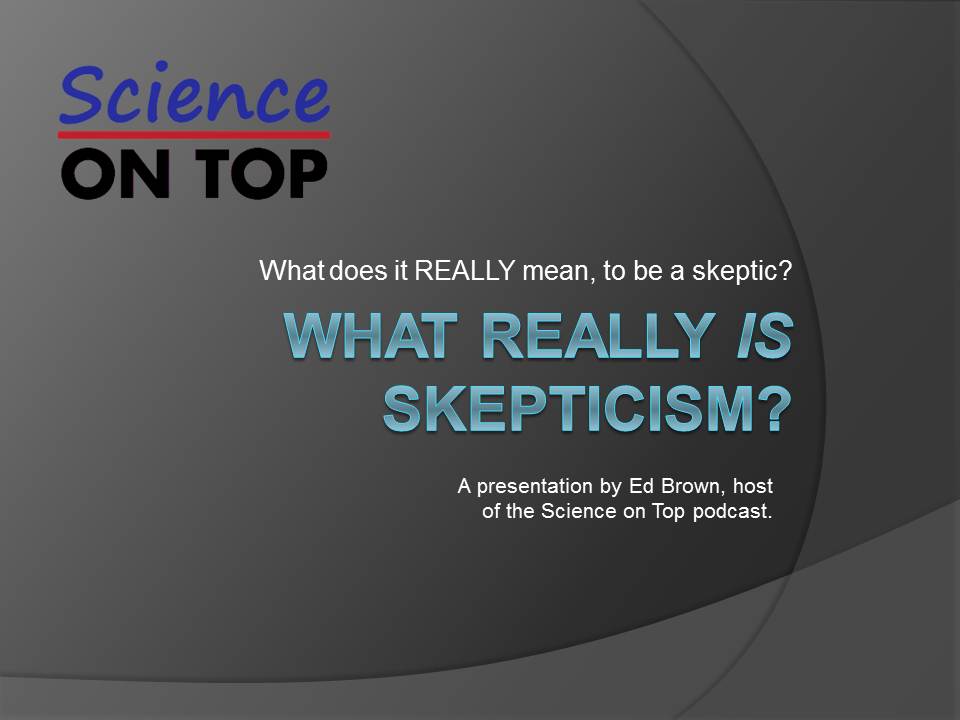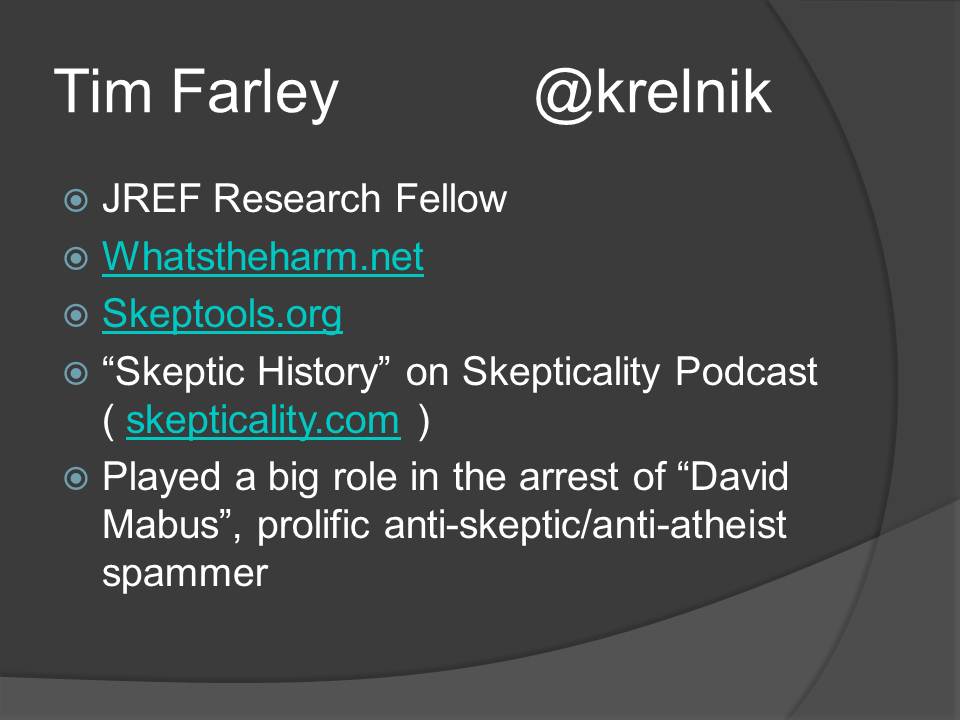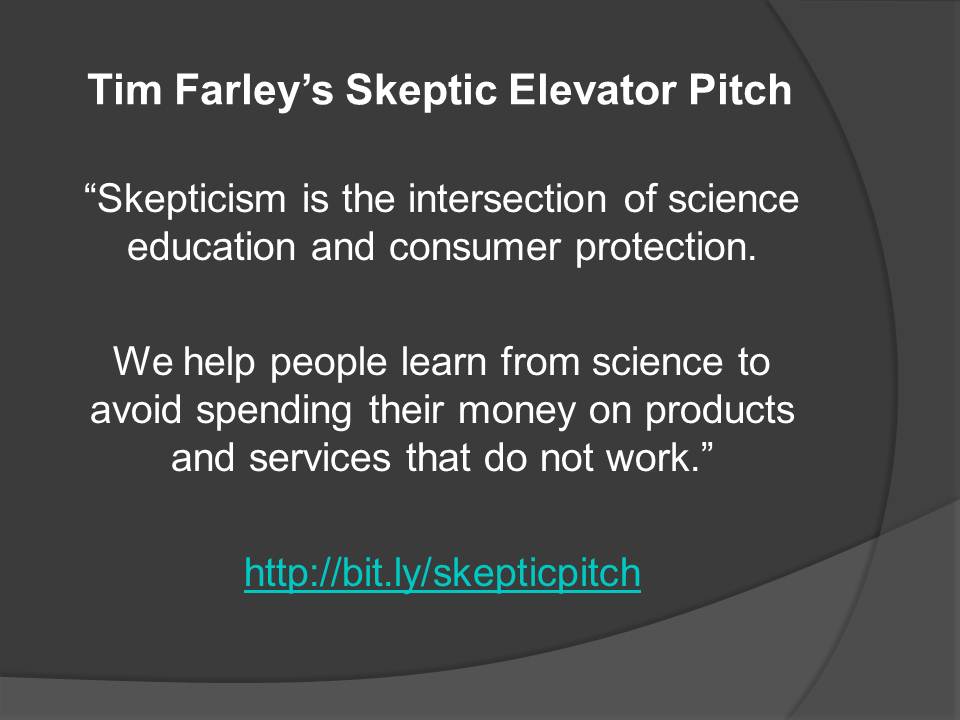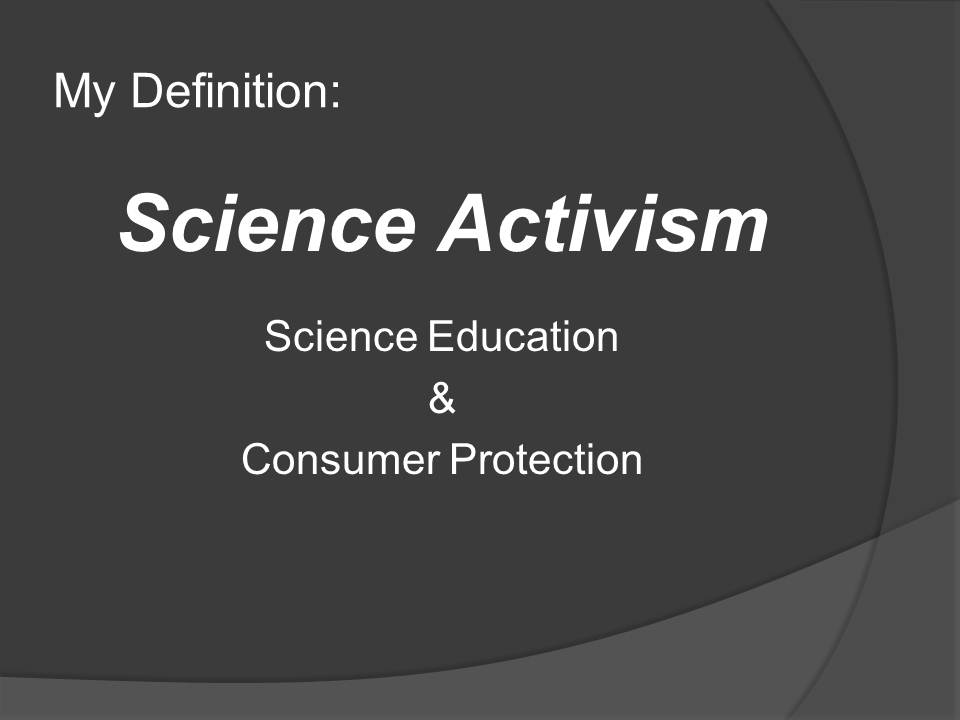On Saturday, Melbourne held its first Skepticamp – an informal day of volunteer-given presentations and workshops. There’s no set schedule – anyone can give a presentation or hold a group discussion. It was a huge success, with around 80 people attending. A fantastic tribute to the two people who did most of the work ‘unOrganising’ the event* – Chris Higgins and Lucas Randall.
My talk – which was far shorter than the 25 minutes it should have been, but anyway – was a fairly basic introduction to Skepticism. I wanted people to be able to define and explain it to people when asked, and also to understand that (in my opinion) skepticism is more than just critical thinking. It’s about activism.
Firstly, I’ve noticed that EVERYONE thinks they’re a skeptic. I had someone once tell me “Oh, yeah I’m a skeptic too! The Earth is so big, there’s no way humans can be having any impact on the climate!” My own brother, after I mentioned I was a skeptic, asked me “What does that mean? You don’t believe in anything?”
We’ve all had similar experiences, where we’ve had to explain what skepticism is. And usually we mumble something about critical thinking, or the scientific method, or relying on evidence. And we get glassed eyed responses: “Oh… right”. We need a good, clear, simple explanation. Fortunately, when I went to TAM last year, they had one on the satchel we got:
It is, incidentally, the same one used on Lucas Randall’s very excellent Skeptic FAQ. Which came first, I’m not sure 🙂
And it’s good. It’s a good definition – it covers some of the more essential components of skepticism. Critical thinking, scientific method, knowledge perceptions, beliefs…
But at the same time, isn’t that just science? What is science if not a process of critical thinking and the scientific method, to examine knowledge, perceptions and beliefs? Now by that I don’t mean I’m a scientist (I’m most definitely not!) or that all skeptics are scientists or even that all scientists are skeptics. What I mean is that that definition doesn’t distinguish skeptics from scientists or people of a scientific nature. It’s a limited definition.
One skeptic I admire greatly, and who has done a tonne of work at What’s The Harm and Skeptools, is Tim Farley. He’s a very good writer, a JREF Research fellow and the guy behind the “Skeptic History” segment on the Skepticality Podcast. He’s also given this a lot of thought, as illustrated in his Skeptic Elevator Pitch post. He came up with a great definition:
Much better! I like that definition. Skepticism isn’t just a way of thinking, it has a purpose. It’s about protecting people, and educating them on science and critical thinking. It hints at what skepticism really is for me – science activism.
Science education is obviously something I’m passionate about, and it’s at the core of skepticism for me. The link between better science education and less ‘woo’ in the world seems obvious but critical to me. And that’s why as skeptics we need to be out there, promoting science and education. When I say ‘education’ I don’t just mean schools – although there’s a lot of work to be done there – but also educating the general public. Efforts like the 10:23 homeopathy campaign and the Placebo Bands are great examples of skeptical activism that educates and informs the public.
My talk finished way too early, so I opened the room up to questions. It went well enough, although I was surprised we actually seemed to have a lady who was very new skepticism. Hopefully she gained a good understanding of what we were about. She seemed very interested in the history of skepticism, and asked whether there was much skeptical activism before social media came around. I bumbled that answer a bit and although I did talk about James Randi debunking Uri Geller for example, but completely forgot things like the Carlos Hoax and Dick Smith’s efforts in the 80s and 90s.
Still, it seemed a well-received talk and was good fun to do. In fact the whole day went amazingly well and I had a great time. I’m really looking forward to the Surf Coast Skepticamp at Airey’s Inlet on Jan 21, 2012. I’ll hopefully be a lot better prepared!
* It’s a Skepticamp thing. Skepticamps arose from the concept of BarCamps, which are almost the opposite of organised, structured conferences. Instead of having speakers organised and planned in advance, the idea is for people to turn up on the day and write their topic on a big whiteboard. Thus, Skepticamps are ‘unOrganised’.






The TAM Australia definition came first. I liked it, so incorporated it into my Skeptic FAQ.
Nice job Ed. I look forward to seeing your presentation when I edit the videos.
Lucas (@c0denix)
I thought that might have been the case. 🙂
Thanks!